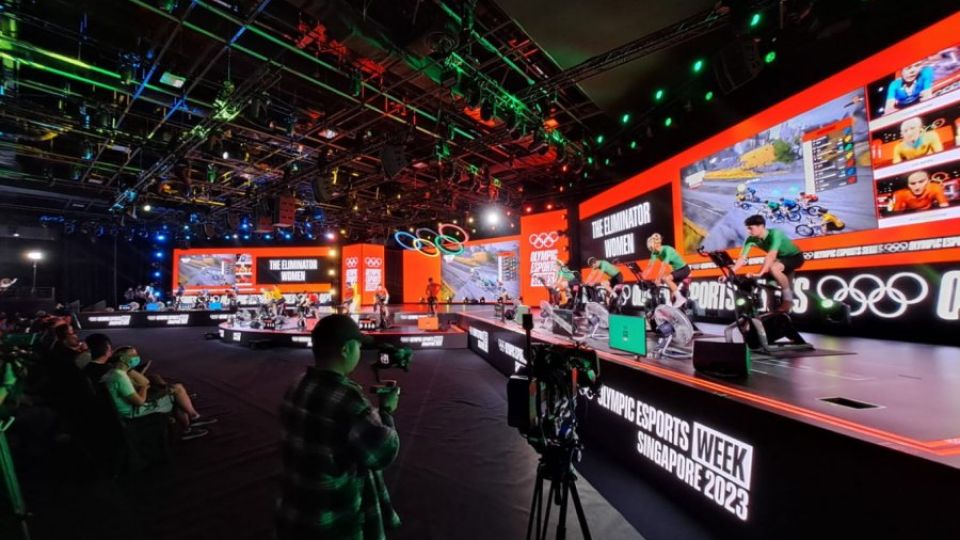July 3, 2023
JAKARTA – Despite making a breakthrough in organizing its first e-sports event this month, the International Olympic Committee (IOC) stood firm on barring certain games from being competed in the event forever, which received a mixed response from fans and gaming communities.
IOC head of Esports Vincent Pereira told The Jakarta Post on Friday that first-person shooter (FPS) games such as Counter-Strike, Call of Duty and Tom Clancy’s Rainbow Six Siege are among those that will “never be part of the Olympic Esports series”, despite having large player bases.
Counter-Strike: Global Offensive was the most played game of the past 24 hours period as of Monday, according to Steam Database, while the latest in the Call of Duty franchise was seventh.
“First-person shooting, for us, will never be part of Olympic Esports because it’s not reflecting the values that we have,” Pereira said at a sideline event of Olympic Esports Week (OEW) 2023.
He added that these values comprised friendship, respect and excellence. From there, he explained, there was a “clear limitation” of what could be included in the Olympics.
The typical FPS games normally involve the objective for players to kill enemies using weapons such as firearms, explosives or melees to win, and therein lies the limitation of “visible violence”, said Pereira.
In some countries, games are often blamed for inciting violence, such as mass shootings in the United States. In 2015, the Indonesian Child Protection Commission (KPAI) issued a warning that several FPS games were dangerous to children for containing violence.
Valve, Activision and Ubisoft, the three publishers of games that the IOC mentioned, did not immediately respond for comment.
Read also: Govt expects President Esports Cup 2022 to turbocharge game development
However, questions arose as the organizer decided to include Fortnite from Epic Games, which is deemed similar to FPS game that the committee has barred.
Much like its competitor, Playerunknown’s Battleground and Apex Legends, Fortnite is a survival game in a battle royal format where the last man standing wins and to be one, players must kill everyone else.
Fortnite was put forward by the International Shooting Sport Federation to represent shooting sport in the maiden OEW, according to the Olympics website.
In response, Pereira defended the decision, saying the committee had created a specially designed format for the event with players to only shoot targets instead of other players, adding that using Fortnite’s default format would certainly go against the “limitation”.
On top of FPS games, the OEW included nine other e-sports in the event, most of which represented traditional sports that are already contested in the Olympics such as cycling, rowing and sailing.
This decision faced criticism from the gaming community, calling a large part of the new category as “not e-sports”.
Matt Woods, cofounder of London-based e-sports marketing and talent agency AFK, said on March 8, he was “disappointed and a little embarrassed” when the IOC announced the lineup of games contested in the OEW.
“Instead of working with existing game publishers or well-established tournaments, it seems that the Olympic committee has instead decided to use this event as a marketing vehicle for brand-new, poorly thought out, unlicensed mobile games,” said Woods, as quoted by the Guardian.
Many other e-sports personalities and industry players have expressed a similar opinion, as the IOC decided not to include several established e-sports games such as League of Legends, Dota 2 and Mobile Legends: Bang Bang (MLBB).
Regardless, others opted to “respect” the IOC’s decision, one of them being the game publisher of MLBB, Moonton Games, a subsidiary of China-based tech giant ByteDance, which also owns the TikTok platform.
Ajay Jilka, head of Esports for Eastern Europe and Central Asia at Moonton Games told the Post at the OEW sideline event that “it’s a good first step”.
Jilka said it was completely within the organizer’s position to decide which games would be contested and “there is no right or wrong”, Jilka said, “e-sports is different for everyone”.
“I completely understand,” said Jilka regarding the visible violence argument, adding: “it’s completely everyone’s right to not want to be a part of that”.
Indonesia has a considerable number of players for games such as Dota 2 and MLBB but neither game was contested at the event, which may explain why the country’s participation in the OEW was minimal. It had only one delegation for chess from a total of 10 competitions.
Read also: Sole RI participant sees Olympic Esports Week as strong opening for chess development
The country’s e-sports association Esports Indonesia (PBeSI) still saw the IOC’s decision as a positive thing a it could “stimulate the development of e-sports” talents and industry.
“For us it’s all fair whichever games are contested in such event. […] We believe that the IOC has weighed everything properly,” PBeSI head of public relations and communication Ashadi Ang told the Post on Friday.
In addition to the existing 10 games, the OEW had several exhibition games such as SEGA’s Street Fighter, Psyonix’s Rocket League and NBA 2K, all of which Pereira said the IOC was considering for future Olympic events.
Alibaba Cloud was involved in the event as a partner and provided an artificial intelligence-driven tool called Energy Expert, which generates data-driven insight on the choice of materials and equipment used in the OEW, as well as measuring the carbon footprint of the event.


